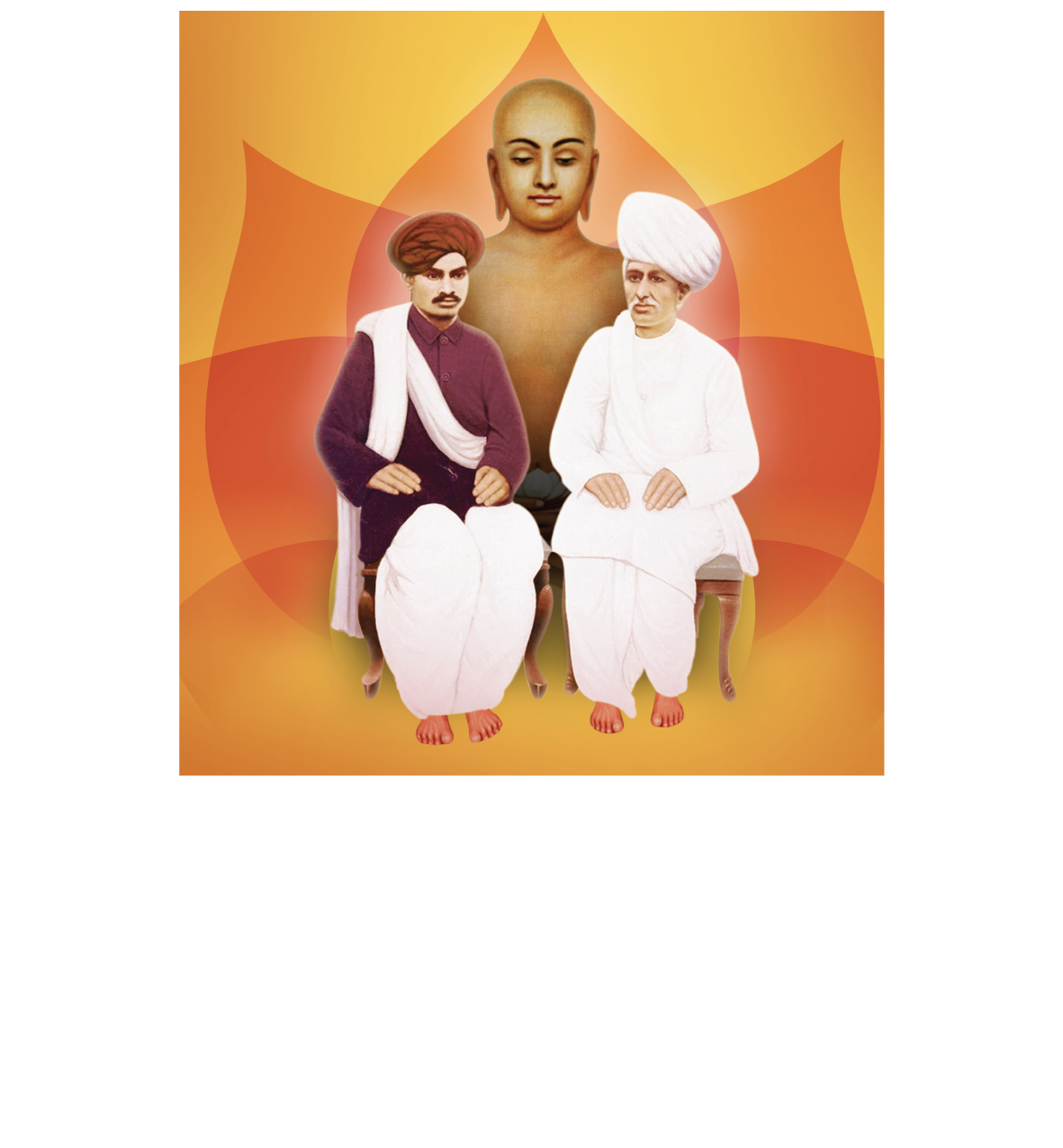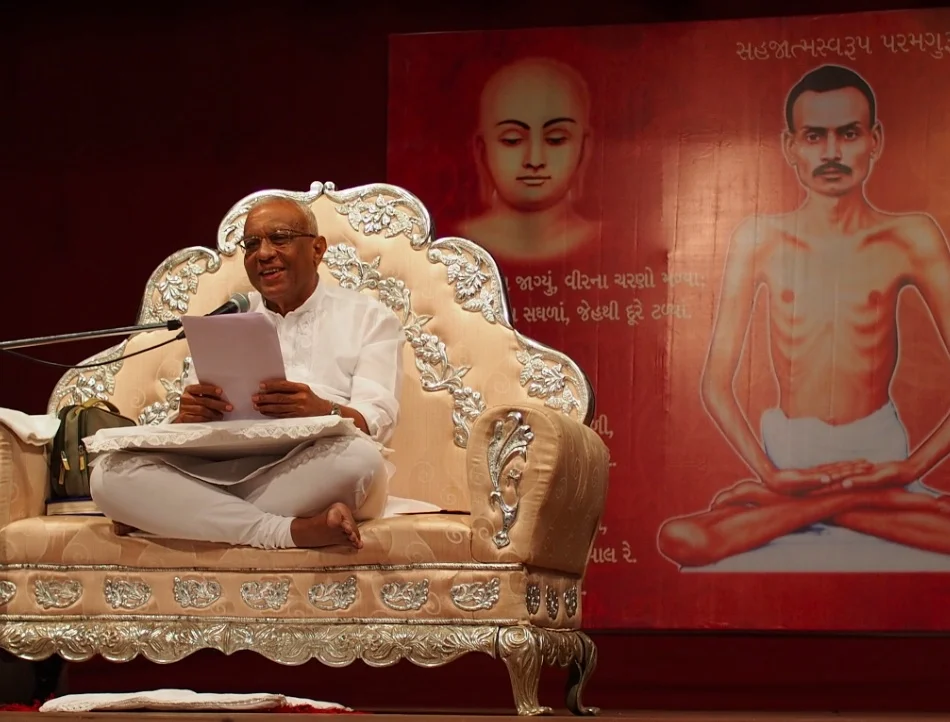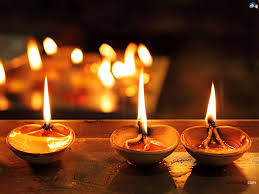Year 2016 marks as the 150th birth anniversary of Param Krupalu Dev. As all the followers of Shrimadji across the globe unite in celebrating his birth, IVY mumukshus too would be joining the celebrations.
The December swadhyay gave insights on devotion, faith, the joy of giving and overcoming the obstacles of the spiritual path in 5 simple ways.
Brahmnisht Minalben began her discourse with recitation and then reflection upon the meaning of the powerful stuti ‘Mahadevya kukshi ratnam, મહાદેવ્યા કુક્ષિ રત્નમ’ and the verse ‘Hey Param Krupalu Dev, janma jara maran aadi, હે પરમ કૃપાળુ દેવ, જન્મ જરા મરણ આદિ’. The verses encourage disciples to give up bad qualities like anger, ego, greed and deceit, and remain under the shelter of an enlightened Master. The benevolent soul does not expect anything in return for his endless love and leads the disciple on the path of complete destruction of sorrows and sufferings and therefore, we are forever in his debt.
Faith and Principles are two pillars that keep mumukshus strong during hardships. The results may not be immediate but not giving up on them pays handsomely. A story of a shopkeeper gave inspiration. Posted in the Himalayas for 3 months, a troop of tired army men where on the lookout for something to keep them warm. En route to the peak, they came across a shop. The army men keenly desired a hot cup of tea. However, the shop was locked. The officers looked at their leader silently pleading to allow them to break the lock. Against his own better judgment and caving in to the need of the hour, officer permitted his men to break the lock. With the materials available, army men made themselves a good hot cup of tea and ate some biscuits. The leader, not happy with his decision, slid a 1000/- rupee note under the box of sugar to assure the shopkeeper that no theft has been done. Three months later, their posting was revoked and while coming down from their post the officer saw that the same shop was now open. The officer still reliving his guilt interacted with the shopkeeper and curiously asks him about his opinion on the existence of God in such a mountainous terrain. Answering his question, shopkeeper narrated his reasons for having faith in God. His son had suffered several injuries and had to be operated, which required huge amount of money that he didn’t have. Feeling low and powerless, he came to his shop and prayed. He had his head resting on the table but when he looked up from there, he found a 1000-rupee note under the box of sugar. That was more than he required and knew that was God taking care of him. After seeing how the events turned unexpectedly, how could he doubt His presence and God’s love for him?
God walks in our life when we need Him to. Till then, He teaches us the art of walking: exercise that keeps our body and soul both in good health. Whenever we face an undesirable or distressing situation, walk away.
Walking now possible in 4 simple ways:
- Walk away from arguments that lead nowhere but towards anger.
- Walk away from people who deliberately put you down. Never feel you are anything less. We have our Guru to take care of us.
- Walk away from failures and fears that stifle your dream. Often we allow our minds to underestimate ourselves; Dream big, be passionate about it, trust yourself and have patience.
- Walk away from people who do not care.
Walking away from the unnecessary is the walk towards Happiness!!
Things, people and situations that cause stress and pain can be avoided. If cannot be avoided, ignore them. When even that’s not possible, rise above the situation, become a witness. Keep calm and let the karma pass.
That is how Krupalu Dev sailed the worldly boat, other elevated souls are sailing and we have to do the same. If nothing else, SMILE! It’s the curve that makes everything straight.
So, as a tribute to Param Krupalu Dev, Ivy mumukshus have pledged to -
- Sing stuti - Mahadevya kukshi ratnam – everyday.
- Begin reading ‘Pinnacle of spirituality’ – from January swadhaya.
- Smile always –It costs nothing, but gives much radiance. It’s the antidote to our troubles. Pujya Bapuji would always remind everyone: ‘સાધના કરો છો આનંદ લેવા માટે, તો આનંદ લેતા સીખો!’
- Exercise- gift ourselves a walk towards happiness.
- Respect our parents; they are our best well- wishers.
- Dream high and be passionate about them.




























